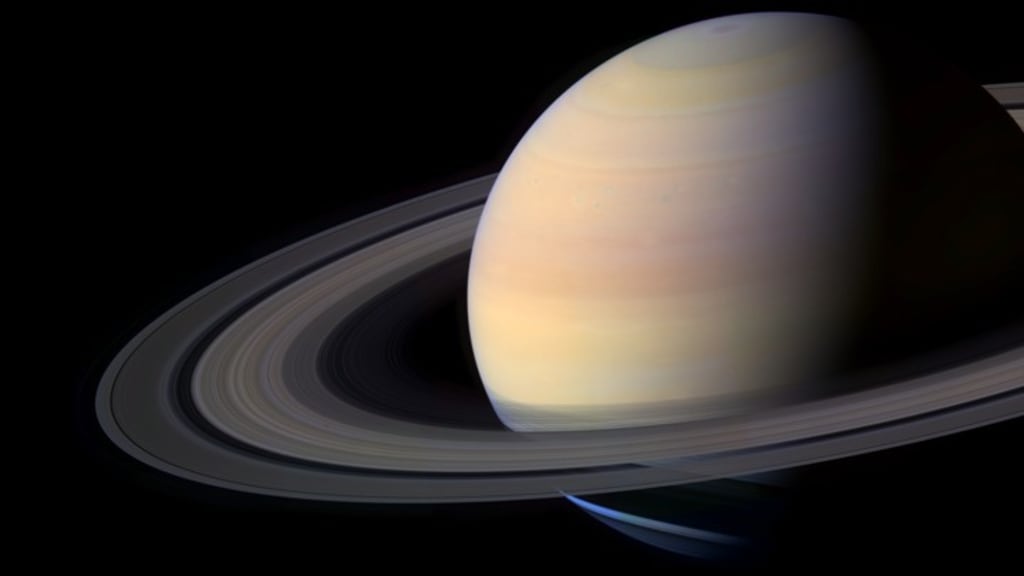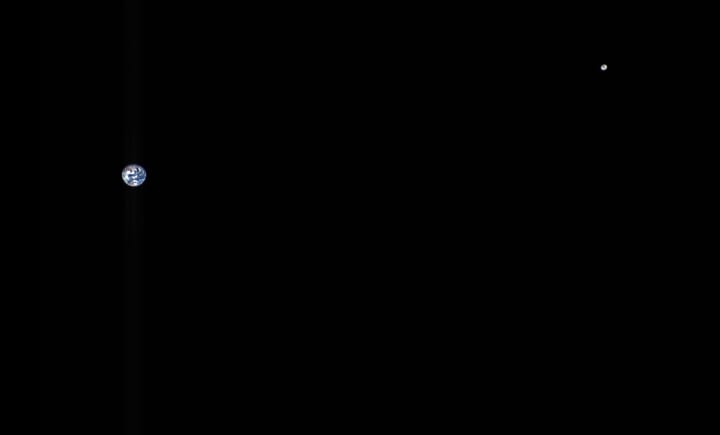
The most interesting thing about the universe is how easy it is to ignore. Things like the fact that the moon is tidal locked to the Earth, and consequently the same side of the moon always faces us. This means we don't have to see the moon spinning on its axis and try to explain it. We can just accept it as a picture flying through the sky that returns every night. Likewise, the planets visible with the naked eye get bigger as they get farther out, and so they all appear about the same size as a star. But if Jupiter and Mars swapped orbits, Jupiter would look 20 times bigger, and much harder to ignore. If we took everything to be simple, it would in fact be simple, because we wouldn't know any better. But we are through the rabbit hole now, the one we call outer-space, and there is no turning back from the reality we have opened. Unfortunately, a knowledge of the cosmological is often seen as a somewhat exclusive club. Perhaps it is a fear of the calculus that usually accompanies sophisticated astronomical discussion that deters most people, and I don't blame them. But although the hard math is necessary for future discovery, it is not at all necessary for people to discussion the universe. The rings of Saturn aren't concerned with the physics of circular rotation that is required for their formation. They exist completely isolated from the math. And so the things we know about the universe become highly accessible to understand, and it becomes our duty as sentient beings to understand the universe in which we live. Start by saying hi to the neighbours.
There are four key players that exist in the night sky: Mars, Saturn, Jupiter, and Venus. Mars is red, Saturn is golden, Venus is bright (the brightest object in the night sky when she wants to be), and Jupiter is big. Jupiter is the only object that has some meat on its bones—all the others are just dots of light. These four stick out like sore thumbs and would never pass as real stars once you realise they're impostors. A good step in appreciating the active universe in which you live is being able to identify the planets you share the solar system with.
Our most intimate neighbour, the one who knows where the spare key is and feeds our cat when we are on vacation, is the moon. The moon is bright enough to cast a shadow at times, and if you've ever tried to keep it focused in a telescope, you know it moves like a mouse on speed. The moon is NOT, I repeat, NOT close. At all. The moon rolls around us at a distance of about 385,000 km. Measurements are borderline meaningless at that size. Our brain couldn't picture that if it wanted to. But in the distance between Moon and Earth, you could squeeze every other planet together shoulder to shoulder, with even a little wiggle room to maybe throw Pluto in. The moon often gets put on the back burner—we all know what the moon is and what it looks like. But you must appreciate that the moon is not just a part of the night sky, it is in fact another celestial body, and to have another celestial body so close to Earth that we can admire it is truly a gift. Another rock, with its own history and geography, swinging around our own rock every 28 days. So next time you see the moon, take a second to really appreciate what it is: another celestial body that is close enough you can admire it. It has nothing to do with the night. It has nothing to do with werewolves. It is a rock in the sky that serves as a proof that outer-space isn't just a collection of Christmas lights.

The moons approximate real distance.
About the Creator
Kirby
Enthusiast, Encourager, and when necessary, Egg thrower.






Comments
There are no comments for this story
Be the first to respond and start the conversation.